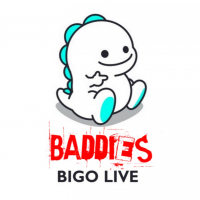How family and friends react to a streamer's career
Streaming has become a full-fledged profession in recent years
If in the past live broadcasts of games or online shows were considered a hobby, today successful streamers earn millions, sign contracts with brands, and gather audiences comparable to TV viewers. However, the path to success is not always smooth: close people react differently to the choice of such a career. Family and friends may support, doubt, or even criticize — and all of this becomes part of the streamer’s personal story.
First reactions: confusion and skepticism
When someone first declares their intention to become a streamer, most relatives and friends take it cautiously. There are several reasons:
- Lack of understanding of the profession. The older generation often does not know that streaming can provide a stable income.
- Doubts about prospects. A streamer’s career seems unstable compared to a "traditional" job.
- Stereotypes. For a long time, society believed that "games are not a job."
Many beginner streamers admit: their first steps were accompanied by ridicule or advice to "find a real profession."
Family support: the key to success
Despite skepticism, support from close ones plays a huge role. Parents who believe in their child’s choice create comfortable conditions for the development of the channel. Often it is the family who helps with purchasing equipment, organizing the workspace, and even promotion.
Examples from real practice show: those who receive support from relatives adapt faster to the challenges of the industry and are less prone to emotional burnout.
Friends as the first viewers and fans
Friends often become the first audience. They subscribe to the channel, comment on broadcasts, and share links on social networks. This helps the beginner creator feel confident and motivated to continue.
Over time, the streamer develops a professional community, but it is friends who set the tone of communication and help shape a positive image.
Conflicts and difficulties
Not everything always goes smoothly. Some streamers face situations where friends start envying their success or, on the contrary, lose interest in communication. Conflicts are also possible within the family, related to:
- time. Streaming requires long hours of work, which can cause dissatisfaction among close ones;
- income. At first, earnings are unstable, and this becomes a reason for reproaches;
- personal life. Constant presence on air sometimes interferes with spending time with family and a partner.
The main task of a streamer is to learn to explain their goals and build a balance between work and personal life.
When recognition comes
The moment of success changes perception. As soon as the channel begins to bring income or becomes popular, the reaction of family and friends changes dramatically:
- Parents begin to feel proud and talk about their child’s achievements.
- Friends turn into active supporters, cheering at every step.
- Skeptics admit streaming is a real profession.
Often this stage becomes a turning point: the streamer feels that their work is finally appreciated.
Psychological aspect: how to cope with pressure
The path of a streamer is connected not only with technical and creative difficulties but also with psychological pressure. If close ones do not support, it is important to:
- Explain goals. Tell the family about plans, prospects, and first results.
- Show achievements. Share channel statistics, viewer feedback, and milestones.
- Not shut down. It is important to discuss problems rather than withdraw into complete misunderstanding.
- Seek support in the community. Streamers often find a "second family" among colleagues and loyal viewers.
Prospects and the future of the profession
Today, more and more people understand that streaming is not just a hobby, but a full-fledged career. Educational courses on content creation appear, brands actively cooperate with bloggers, and in some countries the government even considers recognizing streaming as an official profession.
This means that the attitude of family and friends toward the choice "to be a streamer" will gradually change. In the future, there will be less skepticism and more understanding.
Conclusion
A streamer’s career is not only work in front of the camera but also a serious challenge for relationships with close ones. At the start, misunderstanding and doubts are most often encountered, but over time success and recognition change the opinions of family and friends. Support from close ones can become a key factor on the path to popularity and professional growth.
The stories of many well-known creators prove: when family and friends believe in you, the path to success becomes easier. But even without support, persistence, creativity, and love for the work make it possible to prove to everyone: streaming is the profession of the future.
Our Services for Streamers
Our Services for Content Creators











